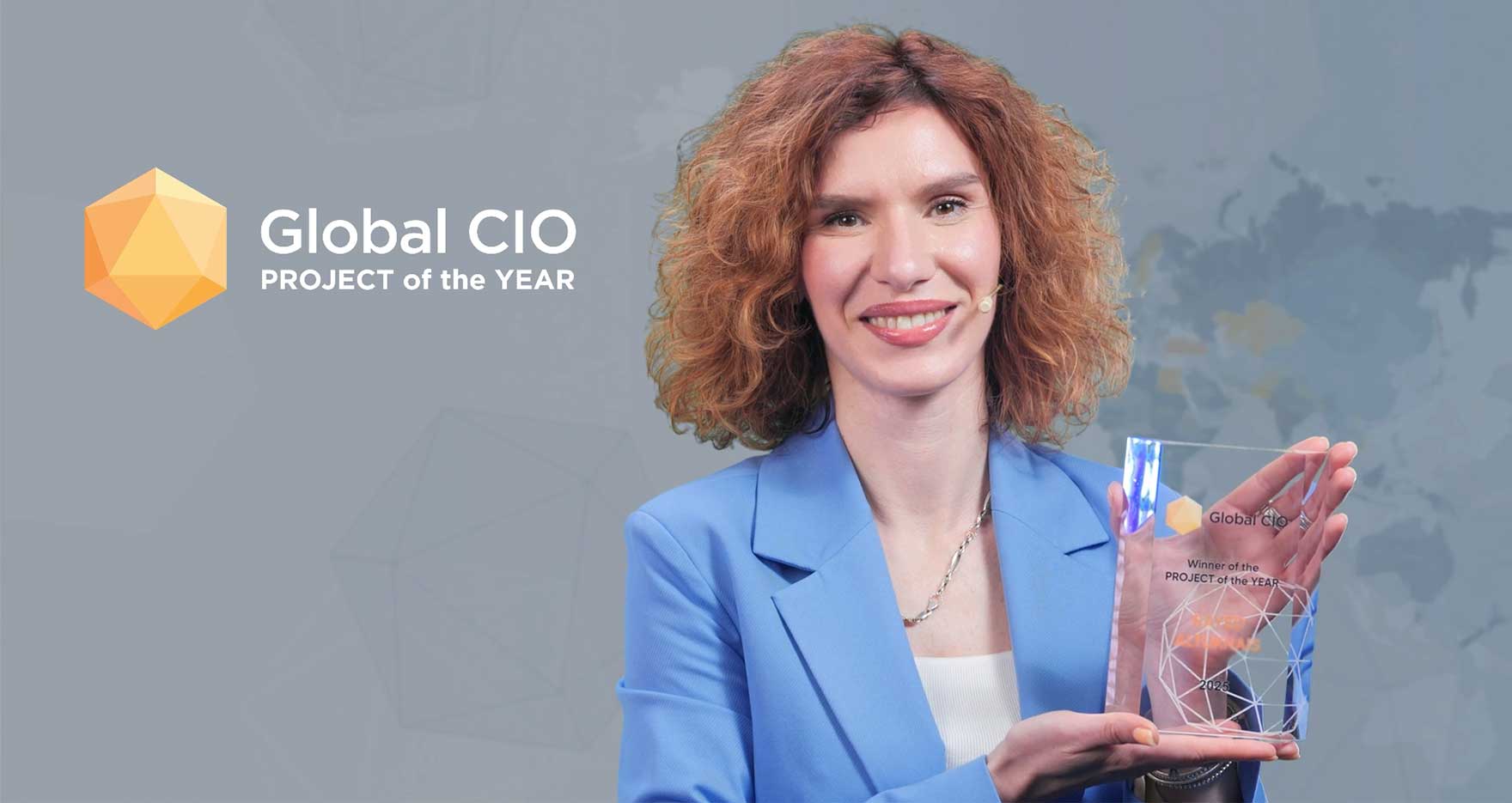Global CIO Professional IT Community Announces the Winners of the International Competition "Project of the Year – 2025"

On January 30, 2026, the winners of the international 'Project of the Year' contest were announced during the online Awards Ceremony. The contest provides IT leaders from around the world with a unique opportunity to showcase their achievements and gain recognition from their peers. It was organized by the international professional IT community Global CIO.

How do personal athletic achievements impact the professional effectiveness of IT managers? Yuriy Glushchenko, CIO of iStapel and founder of SigmaSport.pro, joined experts and practitioners to discuss the connection between regular training and the ability to manage complex projects without burnout. This article features the experiences of participants in the Global CIO summer challenge and an honest conversation about when sport becomes a working tool.

In the midst of the GenAI hype, businesses expect rapid efficiency gains, while IT faces limitations related to data, security, and process maturity. In this article, Dmitry Inshakov, CIO of Kept (ex-KPMG), MBA lecturer and PhD in Technical Sciences, explains how an IT strategy helps transform GenAI from a set of isolated experiments into a managed program with measurable impact. The author explores how to align strategy with business goals and the budget cycle, prioritize initiatives, and embed GenAI into the organization without losing control or increasing risk.

How do CIOs stop being "support services" and gain real business influence? At the Global CIO panel, executives from Tele2/Altel, MBANK, Kolesa.kz, and Kazzinc shared hard-earned lessons: alignment starts not with translating tech into business language, but with financial literacy and upfront stakeholder work. A candid conversation about crises, talent development, and the path to CEO.

December 2025 was marked by a scandal involving AI toys that taught children dangerous behavior and discussed inappropriate topics, while the Chinese market for such toys is growing to $14 billion. Trump signed an executive order blocking state-level AI regulation, while Spain and Brazil are strengthening oversight of the technology. Google is challenging Nvidia by expanding PyTorch support for its chips, and AstraZeneca is revolutionizing the pharmaceutical industry by cutting trial protocol development time by 85% using AI.

When CIOs from manufacturing, pharma, aviation, and banking met virtually this year, one question dominated: where is all the money going? The answer surprised even seasoned technology leaders.

In the context of energy shortages and growing ESG requirements, investments in digital infrastructure are becoming a source of strategic advantage for Central Asia. Digital twins, drones for monitoring gas networks, and blockchain payments are forming a new digital "Silk Road", where energy technologies are the key commodity.

Implementing a corporate communications system is a complex process. On paper, it all seems simple: there's a product, a team, and a deadline. In practice, there are dozens of participants, overlapping responsibilities, user resistance, and endless approvals from the information security department.

Ekaterina Belyatinskaya, business coach and executive coach for IT leaders, held a master class on team communications for members of the Compass CIO IT Leaders Club. The focus was on the Bruce Model Tuckman's four stages of team development: formation, storming, stabilization, and effectiveness. Participants learned how to adapt their leadership style at each stage to create a high-performing team.

Today, monetizing services and services is no longer just a financial process – it's now part of the customer experience. Companies that can flexibly manage pricing, respond more quickly to market changes, and forecast revenue more accurately win.

When IT initiative selection becomes a debate of opinions rather than data-driven decisions, a systematic approach is essential. Georgy Pastukhov, IT management expert, shows how to transform an abstract digital agenda into a clear portfolio in 1–2 working days. The material features 14 technologies (Foundation, Accelerators, Differentiators), practical frameworks (Gartner, McKinsey, BCG, TOGAF), and a proprietary assessment methodology with specific decision thresholds: implement ≥70%, pilot 40–69%, postpone <40%.

Hoff Tech carried out a large-scale digital transformation in a turbulent market with a drop in purchasing power of 8% YoY. CEO Andrey Pluzhnikov spoke about the transition to a microservice architecture, the introduction of omnichannel logic and AI, which made it possible to increase conversion by 10-15% with a flat budget. The key to success is an integrated approach, from technology to corporate culture and product teams.

Industry 4.0 is no longer just a fashionable term for Kazakhstan. The country is confidently moving towards digital transformation, turning pilot projects into large-scale programs. Roman Yashin, Director of Softline Group in Central Asia, talks about key trends, barriers and market opportunities.

October 2025 marked the widespread adoption of AI in business: Google, Anthropic, and Microsoft unveiled new enterprise platforms, while Gap, Walmart, and eBay integrated generative AI into their operations. Regulators strengthened oversight of AI safety, particularly in the financial sector, and to protect minors. Meanwhile, 28% of Americans have admitted to romantic relationships with AI chatbots, raising concerns about growing emotional isolation.

According to a recent survey conducted by the international IT community Global CIO, more than 40% of IT leaders look to professional associations not only for networking, but also for opportunities to learn. The Global CIO editorial team spoke with Barbara Dossetter, a leading practitioner at CXO Connect, a leadership development firm from London. In this interview, Barb delves into the evolving role of the CIO, the critical skills gap in communication and strategic presence, and how targeted executive education is shaping the next generation of IT leaders.

The hotel business in Uzbekistan is growing and digitizing: the hotel management system, ticket offices, online sales channels, mobile keys, smart devices in rooms, active social networks. Along with this, the risks are also growing. We talked to Ilkhom Begmatov, a regional representative of the Softline Group of companies in Uzbekistan, about how to build protection without losing speed and convenience for guestsSoftline.

The Uzum digital ecosystem became the first technology "unicorn" in Uzbekistan in 2024 and continues to grow. The GlobalCIO editorial team spoke with Roman Lavrentiev, COO of Uzum. An IT leader with a product background, he has built companies whose solutions operated from North America to Africa. Today, his experience in scaling global IT products is helping to build a key digital ecosystem in Uzbekistan.





